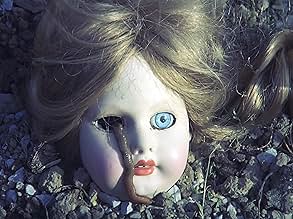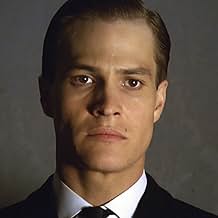This film is an adaptation of the novella of the same name by Henry James.
First and foremost, I fail to comprehend why this film is listed under the "Queer" category on various platforms. The only character in the film that could be remotely considered queer is the Priest, whose homosexuality is evident from the outset. Besides him, we have Asier Hernández, a 13-year-old playing a character of the same age, and Cristina Goyanes, an 8-year-old portraying a character of the same age.
This novella has already been adapted into a film that etched its place in cinematic history, "The Innocents" (1961), with a screenplay by Truman Capote, a queer individual. However, in Jack Clayton's film, much like in Henry James's novella, there's always an air of ambiguity, leaving the viewer wondering, "Is it really so, or am I mistaken?"
In contrast, Eloy de la Iglesia's film features a 13-year-old boy who constantly flaunts himself and an 8-year-old girl parading around in revealing nightgowns. The Priest, a man in his 30s, becomes aroused by the 13-year-old boy and then rushes to seek forgiveness from his God. Where is the queer narrative in this depiction? Am I missing something?
With a runtime of two hours, the film, apart from a couple of pleasing shots, fails to effectively convey a story that's already well-known. It also falls short of delivering the same impactful narrative as the 1961 adaptation, where Deborah Kerr's performance in the final scene shocked audiences and continues to trigger viewers even today, despite being made during the peak of conservatism, both socially and cinematically.
In conclusion, "Otra Vuelta de Tuerca" (1985) is a misguided adaptation that misses the mark in capturing the essence of Henry James's novella. Its attempts at provocation and shock value feel gratuitous and exploitative, overshadowing any potential for meaningful exploration of the story's themes.
PS; I view the consistent categorisation of films with paedophilia and incest themes under LGBT and Queer tags as a form of black propaganda, and this film has only reinforced that belief.



















